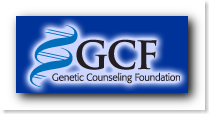The American Medical Association administration recommends that genetic testing be carried out under the personal supervision of a qualified health care professional, but the lines get a bit gray in between what is actual clinical credible data and what is still science. Education of both the physicians and patients helps, but again, it is a bit mind boggling on what is the correct choice of action.
The secondary area is that of what is and perhaps what is not officially legal, and there have been a few lawsuits on records questioning some of the tests that have been carried out. Personalized medicine is still so new and so much of it again, is still science.
The Genetic Counseling Foundation has been established that could offer both physicians and patients a bit more background and how the process is progressing and where genetic testing could be applicable as well and help with some of the confusion here. In the family practice office, there is not a lot of time for research and study with the heavy flow patients a normal physicians sees in a day. BD
It’s amazing what someone can get these days with a credit card and a spit sample. For a drop of saliva or blood and up to a few thousand dollars, more companies promise to unlock the mysteries of human hale condition by profiling patients’ genetic predisposition to a varied assortment of common conditions.
Genetic testing is not right with respect to rare diseases anymore. Clinical tests are available, through greater quantity traditional routes such as physicians, genetic counselors and labs, for more than 1,300 diseases, with several hundred more under research, according to the National Institutes of Health.
Such is the rapidly evolving world of so-called personalized medicine — tailoring treatment options based on patients’ genetic tendencies. While the trend can prompt awareness of genetic stipulations and encourage patients to take make every onset of their health care, it besides portends a world of potential legitimate liability for physicians, experts say.
“The colors of care — medical and legal — is changing, and there’s a lot more to know these days about genetic technologies,” said Lynn Fleisher, PhD, general deliberation for the American College of Medical Genetics. “It’s the duty of physicians to comprehend about the advice and communicate the results of that information to patients.”
But doctors may not be prepared. In an April study on the potential for increased regulatory charge of genetic testing, the Dept. of Health & Human Services Secretary’s Advisory Committee on Genetics, Health and Society suggested that multiplied physicians and health professionals lack the training and expertise to facilitate and interpret tests. The array, like many doctors, also questioned the validity and usefulness of some emerging technologies.
Related Reading:



0 comments :
Post a Comment